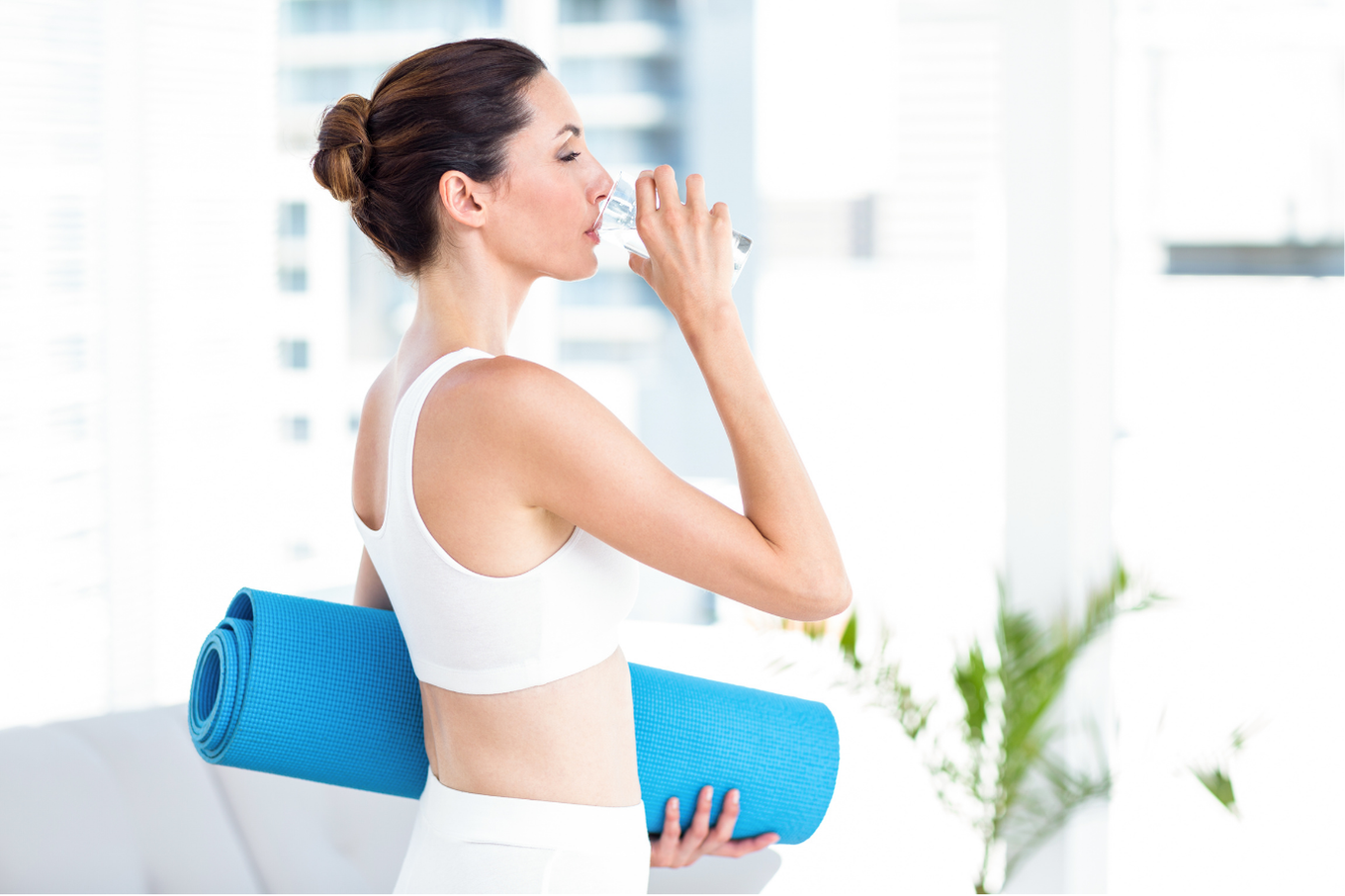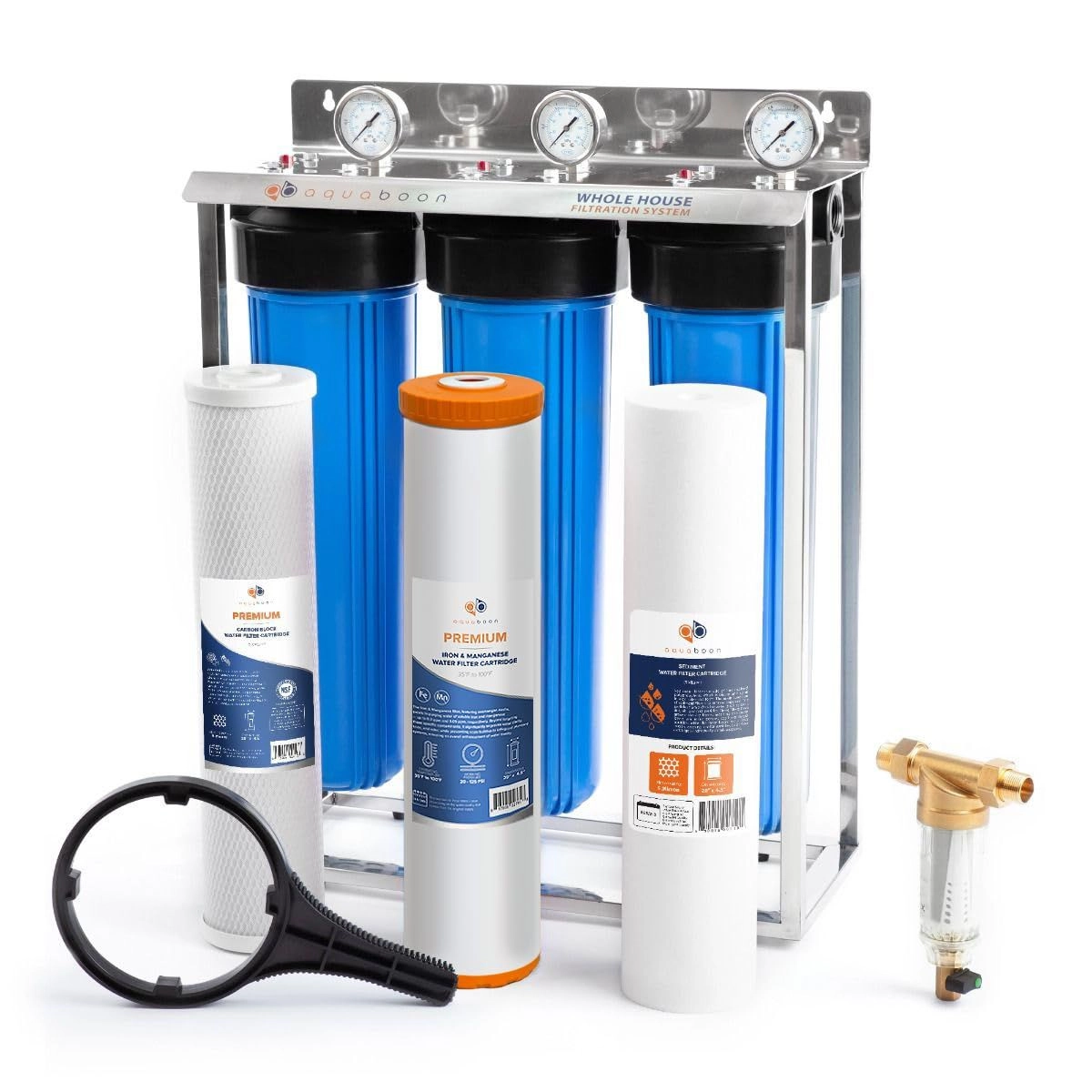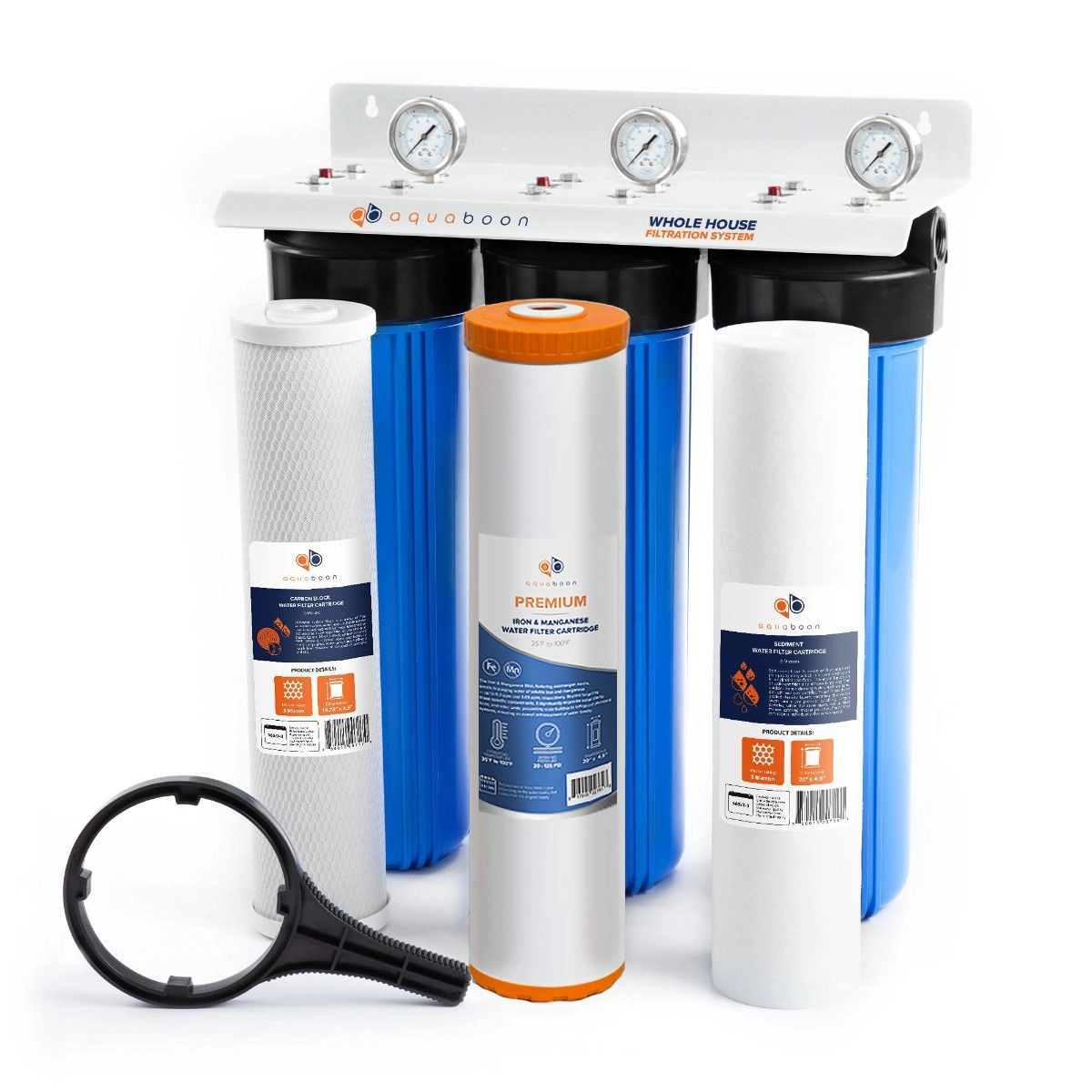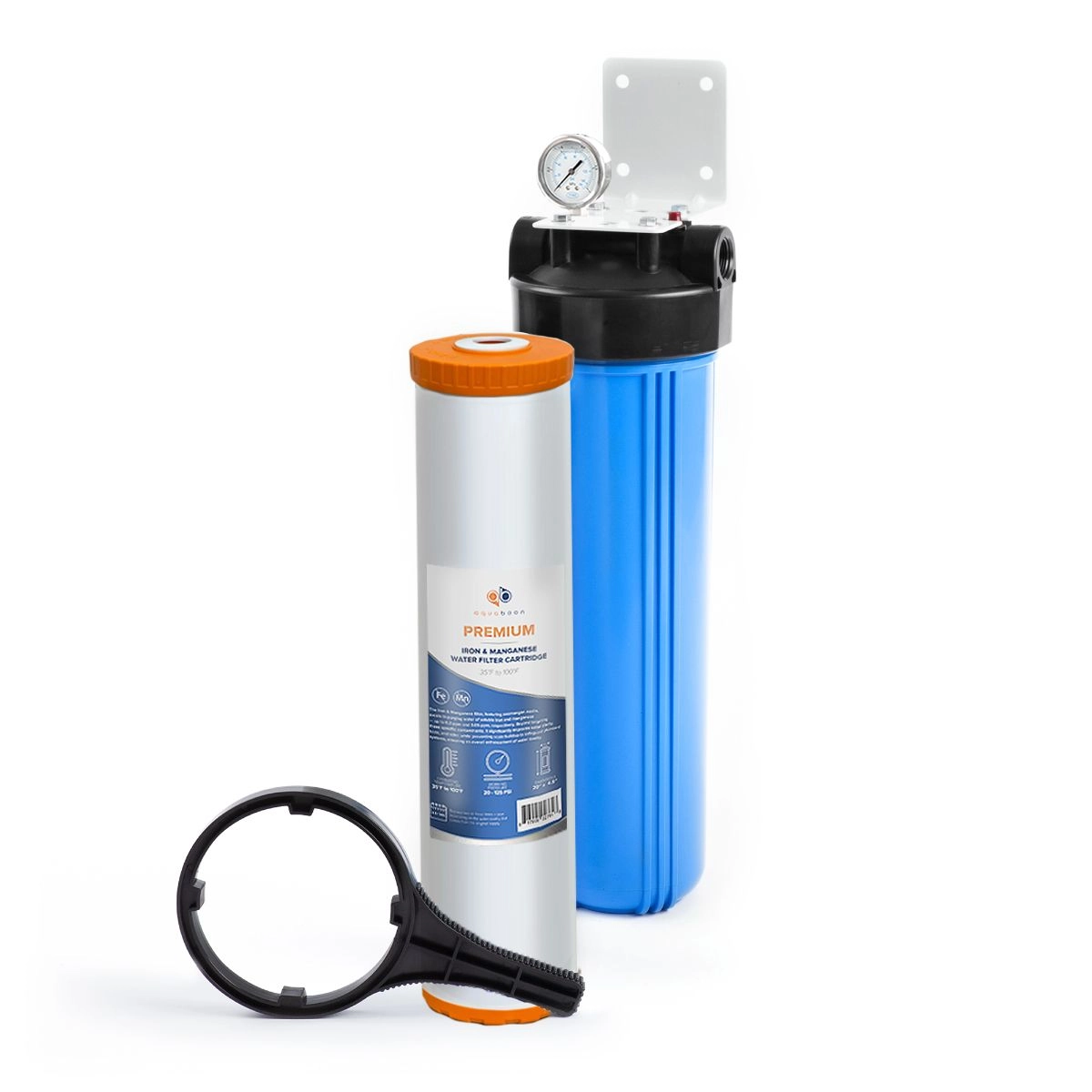When engaging in physical activity, the body undergoes a natural process of fluid loss through perspiration, with the average person losing approximately one liter (34 oz) of fluid per hour of exercise. This is significantly more in high heat or humidity. Although sweating is not harmful, drinking enough fluids to compensate for fluid loss from the body is important.
But what’s the best time to take fluids when working out?
The answer depends on different factors—workout regimen, the weather, and your personal preferences. There are, however, fundamental principles you can follow to make sure you're keeping adequately hydrated.
In this article, we'll dive into the fascinating science behind hydration during exercise. We will also cover expert recommendations on how to hydrate correctly for maximum performance. Whether you're a seasoned athlete or just starting on your fitness journey, this guide will help you optimize your sessions.
What does hydration mean?
Hydration is the process of providing your body with enough fluids to function optimally. For most people, that means getting enough water to support normal body processes such as:
- Regulating body temperature
- Transporting nutrients and oxygen to cells
- Lubricating joints
- Supporting muscle contraction and nerve signaling
- Flushing out waste products
When you’re well-hydrated, your body can respond to physical demands more efficiently. For athletes and fitness enthusiasts, gym hydration is key to sustaining energy levels, preventing cramps, and maximizing workout results.
The main source of hydration is water, but other fluids and foods with high water content (like fruits and vegetables) also contribute. Still, plain water remains the most accessible and efficient way to stay hydrated before, during, and after training.
The Importance of Hydration During Exercise
Hydrating during exercise is crucial for peak performance, sustained energy levels, and reduced fatigue. In fact, according to Better Health Channel, Australia, a loss of just two percent body mass from dehydration (e.g., 1.4 kg in a 70 kg person) can significantly decrease performance and impair focus. It can also pose health risks.
Some of the health consequences of insufficient hydration during exercise are:
- Dizziness
- Fatigue
- Headache
- Increased thirst
- Kidney failure
- Low sweat production
- Low blood pressure
- Nausea
- Overheating
Your body also loses electrolytes during physical activity. The result can be muscle weakness, cramping, and heat exhaustion. Proper hydration ensures that your body performs optimally. It regulates temperature while maintaining electrolyte levels necessary for muscle and organ function.
Some benefits of drinking water during workouts include more energy, focus, and the ability to push yourself during training. You'll also recover faster, enabling you to train harder and more frequently.
What does dehydration mean?
Dehydration happens when your body loses more fluids than it takes in. This can occur during exercise when you sweat and don’t replace the lost fluids quickly enough. Even mild dehydration can impact your performance and well-being.
Common signs of dehydration include:
- Dry mouth and throat
- Fatigue or low energy
- Dizziness or lightheadedness
- Headache
- Dark yellow urine
- Muscle cramps
For active individuals, dehydration can lead to reduced endurance, slower recovery, and an increased risk of injury. Severe dehydration can be dangerous, causing heat exhaustion or heat stroke.
Sweat and dehydration
Sweating is your body’s natural cooling system. When you exercise, your core temperature rises, and your sweat glands release water and electrolytes onto your skin. As sweat evaporates, it cools you down.
However, sweat is more than just water — it contains essential minerals like sodium, potassium, and chloride. When you lose these electrolytes through sweat without replacing them, your body’s fluid balance can be disrupted.
Key points about sweat and dehydration:
- The more intense your workout, the more you sweat.
- Hot and humid conditions increase sweat loss.
- Everyone has a unique sweat rate; some people lose fluids faster than others.
- Replacing fluids before you feel thirsty helps maintain performance.
This is why drinking water before workout and replenishing during exercise is so important.
When To Drink Water During Training?
So, how can you tell when and how much water to drink during exercise? Here are some recommendations from the American Council on Exercise (ACE).
Drinking Water Before Exercise
The timing of water intake during exercise matters a lot. ACE recommends drinking 17 to 20 fl oz of fluids about 2 to 3 hours before hitting the gym, then 8 fl oz 20 or 30 minutes before. In other words, when you drink before workout sessions, you’re giving your body the best chance to perform well. A well-hydrated body is vital to a successful training session. However, you should not overdo it or you will spend most of your workout visiting the restroom.
Drinking water before workout sessions increases blood volume, which can improve oxygen and nutrient delivery to your muscles. This can delay fatigue onset and improve your endurance. It can also help with focus and mental clarity, allowing you to perform at your peak.
Drinking Water During Exercise
Drinking water while working out is just as important as drinking before it. The amount you’ll need largely depends on the intensity of your workout, but as a general rule, you should aim to take about 7 to 10 ounces at regular intervals of 10 or 20 minutes throughout your session.
Drinking water during workout helps to replace fluid lost through sweat and prevent dehydration. It also helps to regulate your body temperature and prevent overheating.
Drinking Water After Exercise
Post-workout hydration strategies also matter. At the end of your exercise, how much you drink depends largely on the intensity of your session. If it was light to moderate, 8 ounces of fluid 30 minutes after exercise should do the trick.
Sweat a lot when working out? You will need 16 to 24 ounces of fluid for every pound of body weight lost.
Drinking fluids after exercise can help to rehydrate your body. It will regulate your body temperature and replenish lost electrolytes. Enough fluids can also help to flush out any toxins that were released during the workout.
Should you drink water while working out in cold weather?
Yes — even if you’re not sweating heavily in cool or cold conditions, your body still loses fluids through breathing and minimal perspiration. Gym hydration isn’t just for hot days; it’s a year-round necessity.
How Much Water Do You Need To Drink Every Day?
You have probably heard that you should drink two liters of water each day. Is this true? Exactly how much water should you drink a day? It depends.
Fluid intake is determined by several factors—age, weight, activity level, and local climate. However, experts recommend approximately eight cups of fluids per day to be well hydrated.
Obviously, hydration for outdoor exercise differs from that for indoor exercise. A person who exercises outdoors or spends time in a hot environment will need more than eight glasses of water.
The best way to figure out how much you need to drink every day is to listen to your body. Pay attention to your thirst level. Your body will tell you when it needs water. Note though, water intake can come from sources. Beverages, fruits, and foods with high water content can also give you some of the fluids you need to stay hydrated.
If you're concerned about hydration for high-intensity workouts, you should drink more fluids than you lost for up to 6 hours after.
Is Filtered Water Good for Your Health?
Drinking enough water during exercise is only one step. Water quality also matters.
Regular tap water contains impurities and contaminants, such as chlorine, lead, and bacteria, which can be harmful to your health. A water filter can remove these.
Filtered water is cleaner, tastes better, and does not smell. Exactly what every fitness enthusiast needs for good health. You can also take things a step further and invest in water filters for the whole house so you can rinse off with clean, safe water after exercising.
Whole House Water Filter System
Conclusion
Knowing when to drink water during exercise is vital for optimizing performance and preventing dehydration.
Small amounts of fluids before exercising will prepare your body for physical activity. Post-workout hydration promotes recovery and replenishes fluids lost during exercise. It is, however, important that you drink only clean and safe water. Otherwise, the purpose will be defeated.
If you're concerned about the quality of your tap water, invest in water filters for refrigerators from Filterway and have clean, safe drinking water every time, not just when you are working out.















